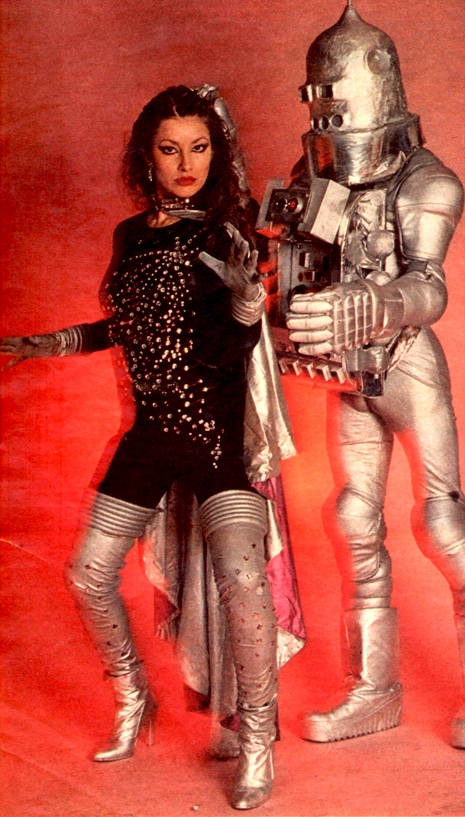
A singer, writer, and producer since the mid ‘70s, Deirdre Cozier can claim an enviable résumé that begins with a stint as the Euro-disco diva who, affecting an outer-space persona and the pseudonym “Dee D. Jackson,” gave the world Cosmic Curves, which spawned the internationally successful singles “Automatic Lover” and “Meteor Man” (if the “meatier man” pun was intentional, bravo!), all before she’d even escaped her early ‘20s.
And like all amazing journeys, this one started when someone left home.
The British-born Cozier was only 19 in 1976 when she married a musician who absconded with all of their belongings after only three weeks. Justifiably livid at such an outrageous betrayal, Cozier set off to find her husband and retrieve her stuff by following the only lead she had—his association with Abi Ofarim, an Israeli musician living in Munich. Cozier graciously shared her story with Dangerous Minds:
I borrowed a little cash from a mutual friend and took off to Germany on a train and boat. I remember getting off the train in Munich with nothing but a little brown beaten up suitcase very empty purse because he took everything else. I walked into a record shop at the train station and asking them if they knew where Abi Ofarim lived—and they did! What are the chances of that, but he told me that I would probably find him working in Union Studios, which was a taxi ride out of Munich, so I spent more than half of what I had in my purse on the ride to Union Studios, and from there on my life totally changed.
When I walked into the studios the musicians and technicians were on a break and most of them were British expats—Keith Forsey, Harold Faltermyer, engineer Zeke Lund, and the bassist Gary Unwin. I kinda walked in sat down and all eyes were on me (I was also rather cute) I introduced myself, all shyness disappearing with the bat of my eyelashes, and they were all so curious as I told them my tales of woe, then next came the question of well what do you do for a living? Telling them I was a singer and song writer seemed like the right thing to say, I had written a few songs in my life and I had sung with a few bands, and I actually did play guitar and a little piano so it wasn’t exactly a huge fib, but definitely not what I thought to be my vocation in life.
Not a “huge fib,” perhaps, but blurting out that she was a singer was hugely transformative. She soon began to sing with a Turkish/German jazz band in strip clubs, and started writing music with Unwin, with whom she contrived the Dee D. Jackson alter-ego, mining that era’s vivid imaginings of futuristic fashion and sci-fi’s preoccupation with artificial/mechanical life. The collaborators landed a recording contract with Jupiter records, leading to a hit in Austria and Switzerland with the single “Man of a Man,” and so in 1978 Cosmic Curves was born, along with a persona that made for a WONDERFUL series of sexy sci-fi camp record sleeves.
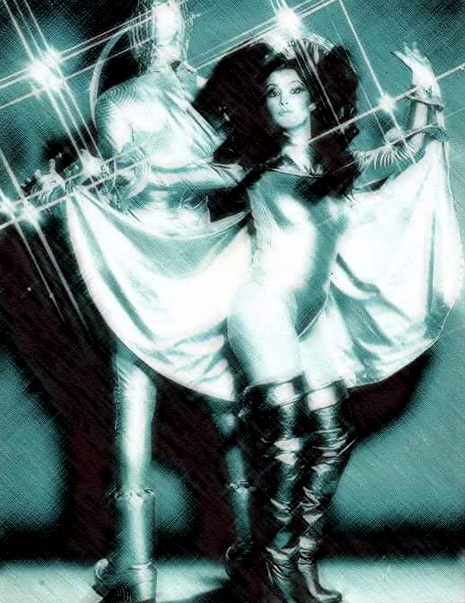
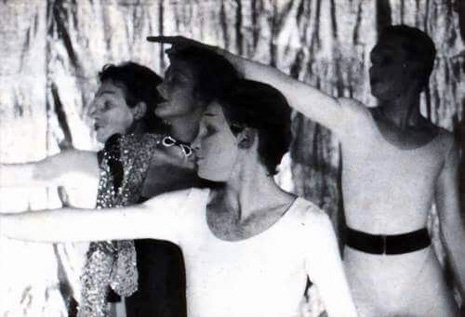
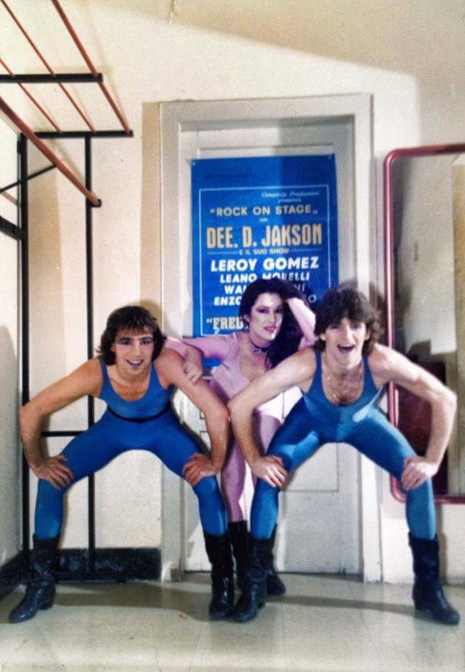
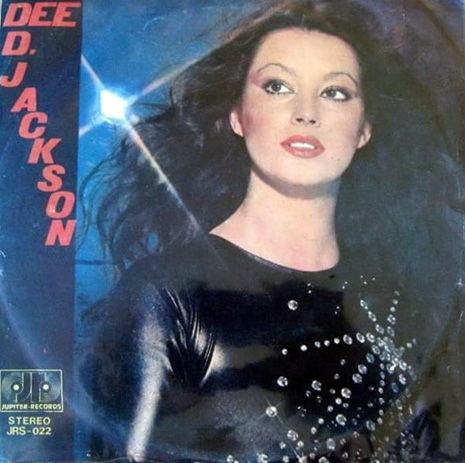
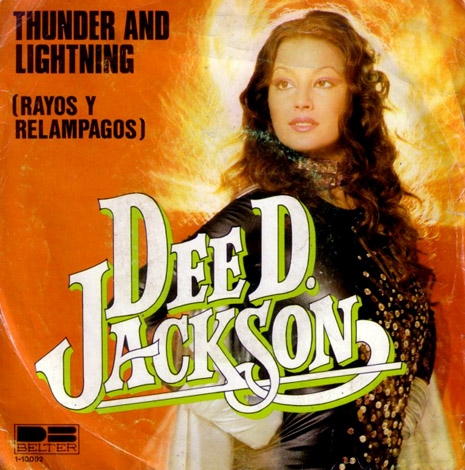


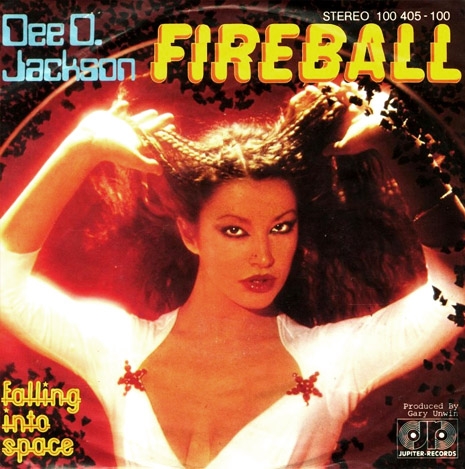
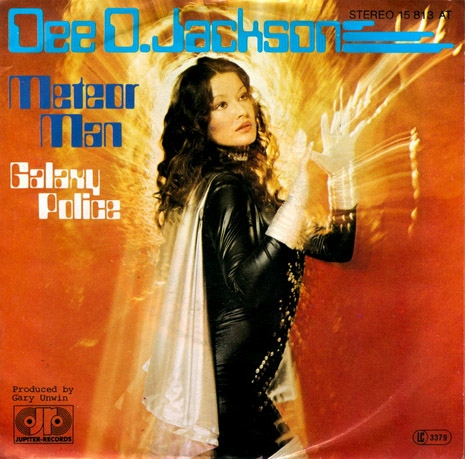
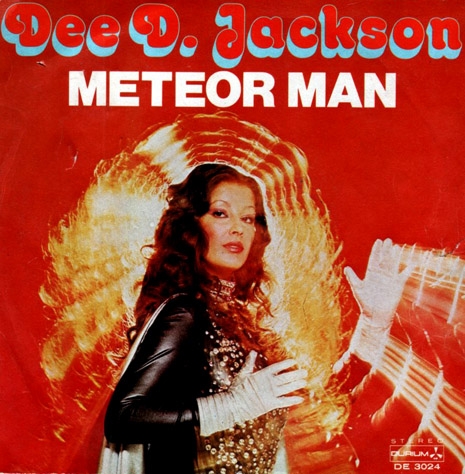
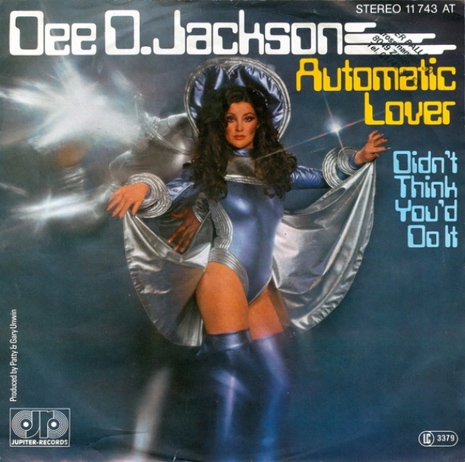
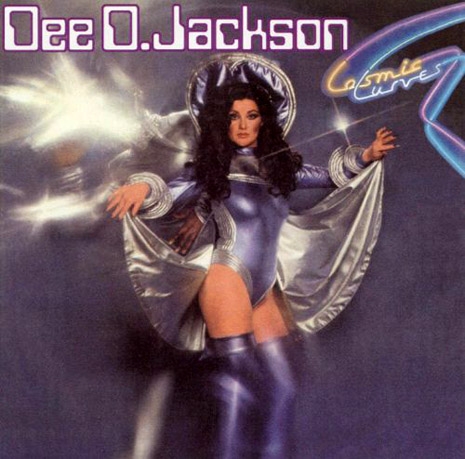
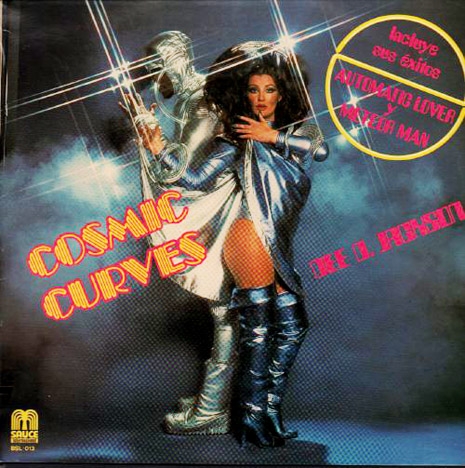
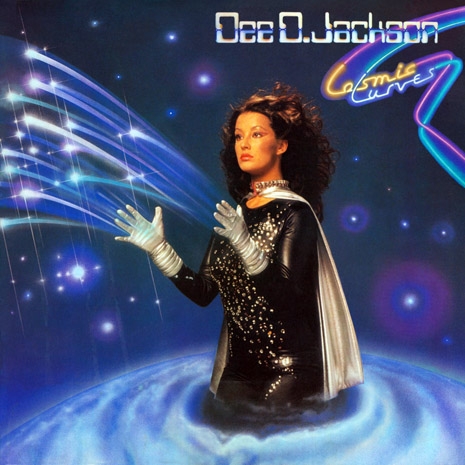
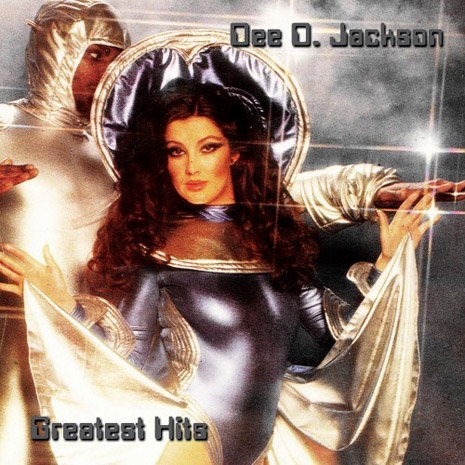
Despite the winning concept, Cozier found herself on the wrong end of typical music business duplicity:
The record company loved the concept and the demos, so we recorded the album in Union Studios. It was a very expensive venture. It has a lot of my actual story in it, most of the tracks were written by Gary, his wife Patty, and I in their little home studio. The whole album just fell together really, it was super exciting and I enjoyed writing the songs—I visualized myself already on stage, and felt super comfortable with the theatrics.
In the spring of 1978 the first single was released, and it sold like crazy at Midem, and I first got handed a copy of “Automatic Lover.” I was sitting in the car with Patty and I remember looking at the credits and not seeing my name credited as a writer, and an overwhelming sadness came over me—I wrote the chorus, which is one of the winning parts of the track. I confronted her and she replied “I thought you would say that, but you have the B side.” I was lost for words, yes I had credit for the B side because I wrote that too! I was devastated that I had been betrayed even as I was just getting started, and of course our relationship was never the same after that. Even though we continued through a few European tours, the resentment was building up inside of me until our relationship eventually broke down, I didn’t know how to fight it. I didn’t want to cause trouble, partly for fear of being dropped by the record company, but at the same time I didn’t want it to go unnoticed, which unfortunately, in the end, is exactly what happened. Not doing anything about it was a whole lot worse.
As if that weren’t enough, “Automatic Lover” sparked a Dee D. Jackson mania in South America which led to another ripoff. So huge was the single in Brazil that another woman impersonated the singer, dressing in similar costumes, performing with a robot, giving concerts in stadia, and making TV appearances as though she were in fact Jackson! Cozier herself never found out about this until years later—her record company knew, but since it sold records, they let it go, and never informed the singer that a copycat was biting her act.
Despite all these betrayals, Cozier worked with the Unwins on a second album, 1980’s Thunder and Lightning, but that year ended up being the the outer limit of disco’s commercial viability. Cozier moved to Italy, where she established a recording studio and went into the production and publishing side of things, writing trance and pop tracks for other artists, even singing under different names. She eventually opened the record company DDE (Divine Dance Experience) releasing jazz, house, deep house, and trance recordings. The recording studios are now closed, but the label continues to operate out of London. She never forgot the reason she left home, and did eventually met Abi Ofarim, who was unable to help her locate her husband, but he eventually tracked her down in Rome the early ’80s, seeking a divorce.
Cozier regained the rights to the music after decades of being ripped off by the original label—for all the copies sold in the ‘70s and ‘80s, Cozier was paid nothing. She’s attempting to rectify that with streaming reissues—her music will be available on Spotify starting on February 23rd, with a vinyl release date to be announced.
Previously on Dangerous Minds:
‘Saturday Night Fiedler’: This IS your father’s Disco-sploitation
Fascist groove thang: Mussolini’s granddaughter recorded a disco number, 1982
Music Drives Me Crazy: Austrian Space Disco Band Ganymed